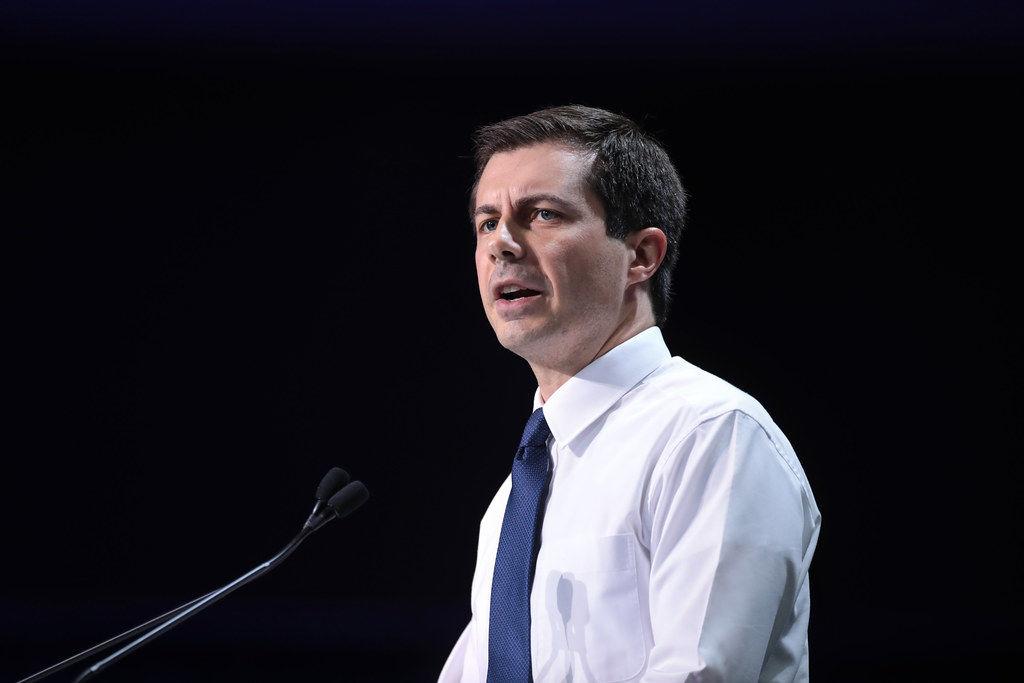Editor’s Note: On March 1, Buttigieg officially announced that he was suspending his presidential campaign.
There is this ubiquitous refrain that comes from people who had only vaguely heard of Peter Buttigieg before they met him in-person or heard him speak. “He is so likable,” they often go. “Definitely not what I was expecting.” Well, Buttigieg is a 38-year-old former mayor from small college town South Bend, Indiana, and the first openly gay candidate to launch a major presidential campaign of any party. One might have several credible hypotheses about where some of this prior hesitation comes from. However, despite the tyranny of people’s low expectations, Buttigieg, or “Pete” as he prefers everyone to affectionately call him, has an uncanny ability to poignantly give voice to the cancer that ails current American life and articulate the remedy that it demands.
Presidential elections are typically a game of issue politics. However, the American presidency is more than a mere exercise of policy preferences and priorities. Much more important are the values and character one brings to both the foreseen and unforeseen challenges that come with the title of president. When such questions of virtue become subservient to quests for power, you arrive at a situation very much like the intractable state of contemporary government business. But when Buttigieg speaks, you observe a clear-eyed authenticity when he describes the fractured nature of modern politics and how it alienates people from their government. Instead of his particular stance on “the Green New Deal” or a “living wage,” his appeal rests in the moral credibility with which he speaks about the divisions in the country — whether social, economic or political.
For a politician, Buttigieg is uncharacteristically gracious and amicable to the perspectives of those whose views diverge from his. When he disagreed with pro-life democrat Kristen Day during a Fox News town hall, he didn’t dismiss the genuineness of her beliefs nor demean her with ideological platitudes. He engaged her with integrity, emphasizing (get ready to gasp) how people may arrive at different issue positions in good faith. Imagine that: a presidential candidate, in 2020, suggesting that we should aspire toward a spirit of common tolerance. Commence the stake-burnings!
Thus, like a mantra, Buttigieg frequently talks about the hunger for belonging in America. To him, the record-shattering suicides and the drive to self-medicate using opioids — and the deaths that tragically ensue — are all manifestations of the same fundamental crisis. Too many people in the United States feel that they have no role in society. To help them is to rebuild their feeling of community — to recommit ourselves to each other.
In the same spirit, 27-year old Buttigieg decided to volunteer for military service, despite a cushy job at McKinsey & Company and a budding political career. Buttigieg, who spent part of the years leading up to the 2008 presidential election protesting the Iraq War, had been struck by the disproportionate burden of military service on some American communities while canvassing for Obama. So in 2009, he commissioned as an ensign into the U.S. Navy Reserve to do just that — contribute his fair share.
Illustrating his commitment to a values-first campaign, Buttigieg released his 10 Rules of the Road — respect, belonging, truth, teamwork, boldness, responsibility, substance, discipline, excellence and joy. They evoke a distinctive chord deep in people’s souls about what it means to be American. There is something almost religious about them, which is not surprising given that Buttigieg is an avowed life-long Christian. The underlying tenet is deceptively radical — that we should treat all citizens with dignity and inherent worth. That we accomplish this by exuding honesty in word and deed, honoring our free will and taking responsibility for ourselves and the consequences of our actions. Unsurprisingly, his healthcare plan respects the autonomy and individual tastes of Americans by calling for “Medicare for All Who Want It.” What he beckons of his fellow patriots is to renew their civic faith in what America can be. Who we are at the end of the road in November is as important as where we reach.
Specifically, who we are can change, and the power of positive politics is to direct that transformation toward forgiveness and understanding. As Buttigieg puts it, “All of us do or say things we might regret, and all of us can do better…This idea that we just sort people into baskets of good and evil ignores the central fact of human existence, which is that each of us is a basket of good and evil and the job of politics is to summon the good and beat back evil.”
His gospel of solidarity and togetherness appears to be gaining traction. Buttigieg clinched the race in Iowa and had relatively strong finishes in New Hampshire and Nevada. As of this writing, the contest in South Carolina is still days away. Regardless, it doesn’t change the fact during the Super Tuesday primaries on March 3, Texans should vote for a politics of values and a civics of unity. They should vote for Pete Buttigieg — the candidate best conditioned to lead the U.S. into the new decade.
There once was a man from Indiana
February 27, 2020
Photo by Creative Commons
Pete Buttigieg
0
Donate to The Battalion
$2065
$5000
Contributed
Our Goal
Your donation will support the student journalists of Texas A&M University - College Station. Your contribution will allow us to purchase equipment and cover our annual website hosting costs, in addition to paying freelance staffers for their work, travel costs for coverage and more!
More to Discover










